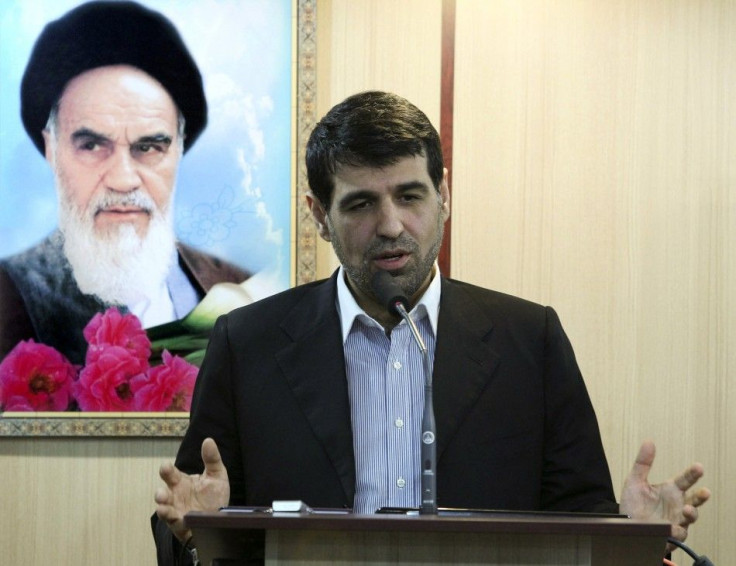Deepening Rift In Iran: Another Ahmadinejad Ally Arrested

A close ally of Iranian President Mahmoud Ahmadinejad has reportedly been arrested on corruption charges, widening the ongoing rift between the president and Iranian Supreme Leader Ayatollah Ali Khamenei.
Mohammad Sharif Malekzadeh, who occupied the post of deputy foreign minister for just three days last week but was pressured to quit after complaints by the parliament, has denied all charges.
Esmail Kowsari, deputy head of the parliamentary committee on national security and foreign policy, told the semi-official Mehr news agency: [Malekzadeh] was arrested… on financial fraud charges and because there are numerous existing cases against him.
In a resignation letter to the foreign minister, Malekzadeh wrote: Despite dastardly manipulations and plentiful injustices done against me, I can't accept that you suffer from unjust pressures because of me anymore.
Malekzadeh is just the latest of a series of Ahmadinejad allies who have either been detained or dismissed in recent months. This group includes some 25 people, including ex-presidential aide Kazem Kiapasha, and the former head of the cultural committee, Abbas Amirifar.
According to media reports, Malekzadeh is closely linked to Esfandiar Rahim Mashaie, Ahmadinejad's chief of staff. Conservatives in parliament have condemned Mashaie as part of a deviant current seeking to promote nationalist politics over Islamic clerical rule.
Media reports indicate that Ahmadinejad wanted Mashaie to run for president in 2013.
According to reports, Iran’s conservative parliament would like Khamenei to impeach Ahmadinejad for they fear he is trying to undermine the authority of religious clerics. Khamenei, meanwhile, is believed to prefer a more moderate approach – i.e., let Ahmadinejad's term end quietly without resorting to any public confrontations.
Ironically, Khamenei strongly supported Ahmadinejad during the controversial 2009 presidential elections.
“The president [Ahmadinejad] now knows he lacks institutional power to challenge the prerogatives of the supreme leader,” said Ray Takeyh, a senior fellow at the Council on Foreign Relations and a former Iran adviser to the Obama administration, according to media reports.
“And Khamenei appreciates that an impeachment crisis would prove destabilizing for the system. Thus, a weakened Ahmadinejad who stays in his lane is good for the supreme leader.”
© Copyright IBTimes 2025. All rights reserved.





















